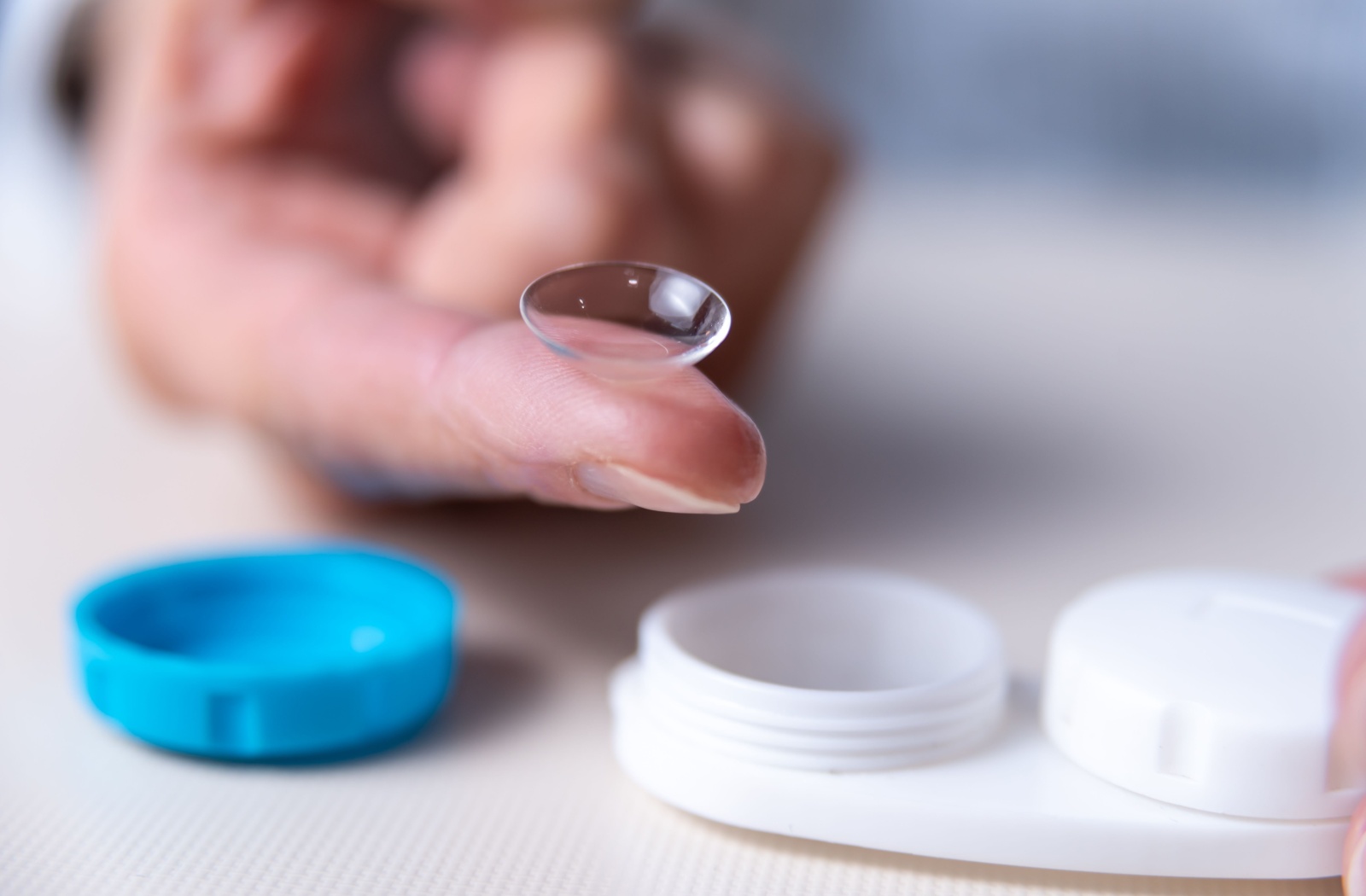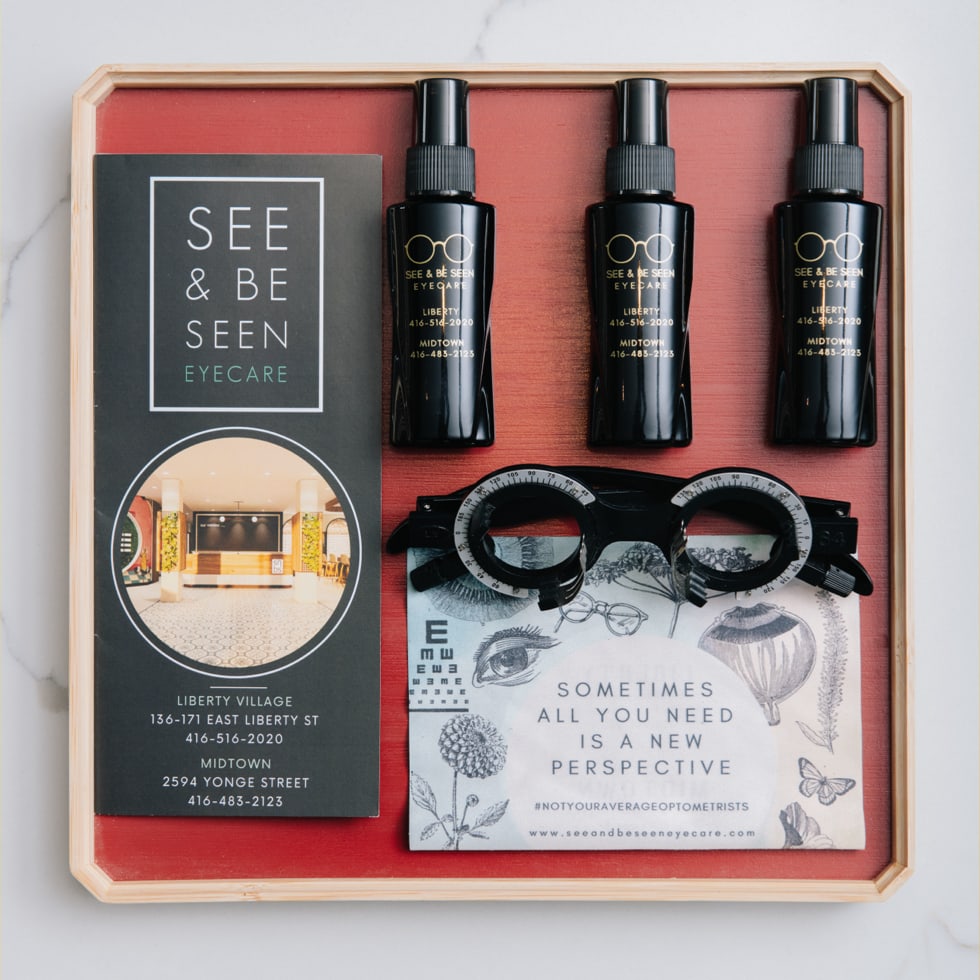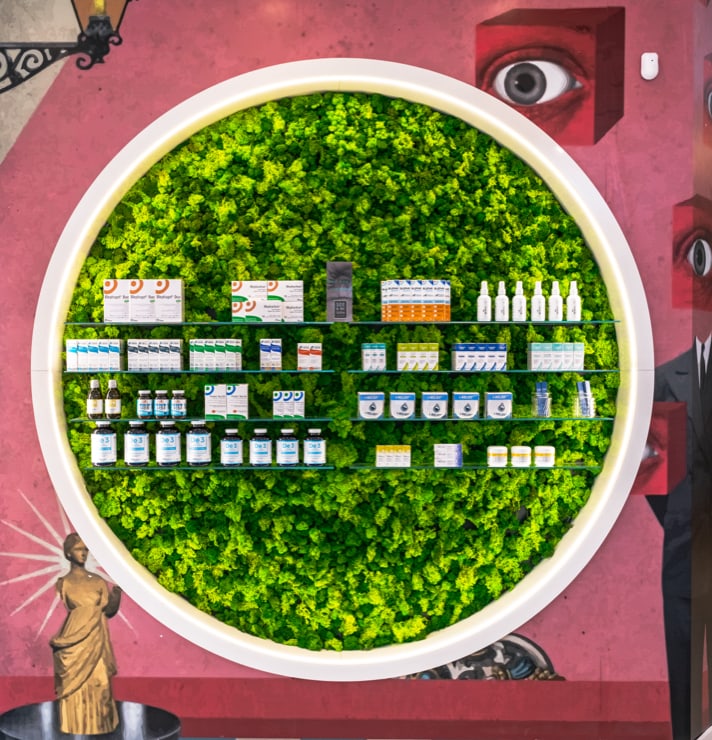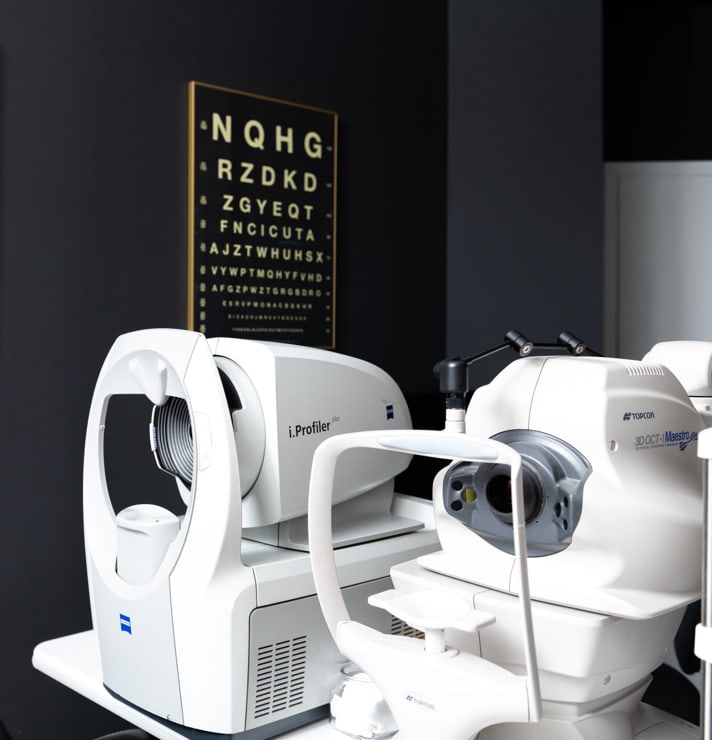You’ve just found a spare pair of contact lenses at the back of your bathroom cabinet, and you’re contemplating whether they’re still safe to use. That’s not a question to be dismissed lightly. Contact lenses do expire, and they should never be worn after their expiration date.
Understanding contact lens expiration dates is important for protecting your eye health and vision from serious complications. In addition to helping you explore your options for specialty contact lenses, we can also answer your questions about contact use and care during your contact lens fitting.
What Are the Risks of Wearing Expired Contacts?
There is no acceptable level of risk for wearing expired contacts. The potential pitfalls of wearing expired contacts are numerous, ranging from minor discomfort to severe eye infections and, in rare cases, vision loss.
One of the most serious risks of wearing expired contacts is that they can be exposed to bacteria, leading to a significantly higher chance of developing sight-threatening eye infections like keratitis (also known as a corneal ulcer), which can cause blindness due to scarring.
How Do You Know If My Contact Lenses Are Expired?
The primary indicator of expired contacts is the date printed on the box. If your contacts come in a blister pack, you may also find the expiration date printed on each blister pack.
Expiration dates are usually written either with the month and year of expiration, such as “August 2024,” or in numerical year-month formats, such as “2024–08.” Be careful not to mix up the manufacturing date with the expiration date.
If you can’t find the expiration date for your contacts, the expiration date is unreadable, or you’re not sure if they’re expired in any way, do not wear them.
How Long Do Unopened Contacts Last?
The expiration date of contacts can vary based on the type of contacts you wear, but in general, unopened contact lenses can last for 1–4 years from their manufacturing date. However, your contact lens prescription may not be valid for that full amount of time.
When you wear contact lenses, it’s important to visit an eye doctor at least every 1–2 years, depending on your personal eye health.
It’s possible for your vision and eye health to change over time. We can assess your eyes and contact lenses during a routine contact lens eye exam to determine if you’re still using the right contacts for your needs.
Expiration Dates vs. Contact Wear Schedule
It’s important to be aware that your contact lens wear schedule is not the same as the expiration date for your contact lenses. If you wear daily disposable contacts, you should always dispose of them immediately after using them, even if they are not expired.
Your contact lenses might expire sooner than you anticipate, especially if you wear contacts that have an extended wear schedule, such as monthly contacts. It’s vital not to stretch your use past recommended wear times, even for a single day.
Can You Use Contact Lens Solution Past the Expiration Date?
You should never use contact lens solution after it has expired. Some types of contact lens solutions have 2 important dates to be aware of:
- The expiration date dictates when it’s no longer safe to use contact lens solution even if it hasn’t been opened.
- The discard date dictates when you should no longer use the solution after it has been opened.
How Do Contacts Expire?
The saline solution inside the packaging or the packaging itself is at risk of failing past the expiration date.
The saline solution used to package contact lenses can deteriorate over time, losing some of its ability to keep the lenses free from contamination.
When the packaging fails, it’s often because the seal has come loose, exposing the contacts inside to bacteria that can build up and cause infections.
What Should You Do If You Wear Expired Contact Lenses?
Remove expired contact lenses from your eyes immediately. In most cases, you should also contact your eye doctor. We may recommend visiting us for an eye exam so we can examine your eyes for signs of infection and provide any necessary treatment.
If you experience any discomfort or irritation, do not hesitate to visit us. We offer emergency eye care for a wide variety of sudden needs.
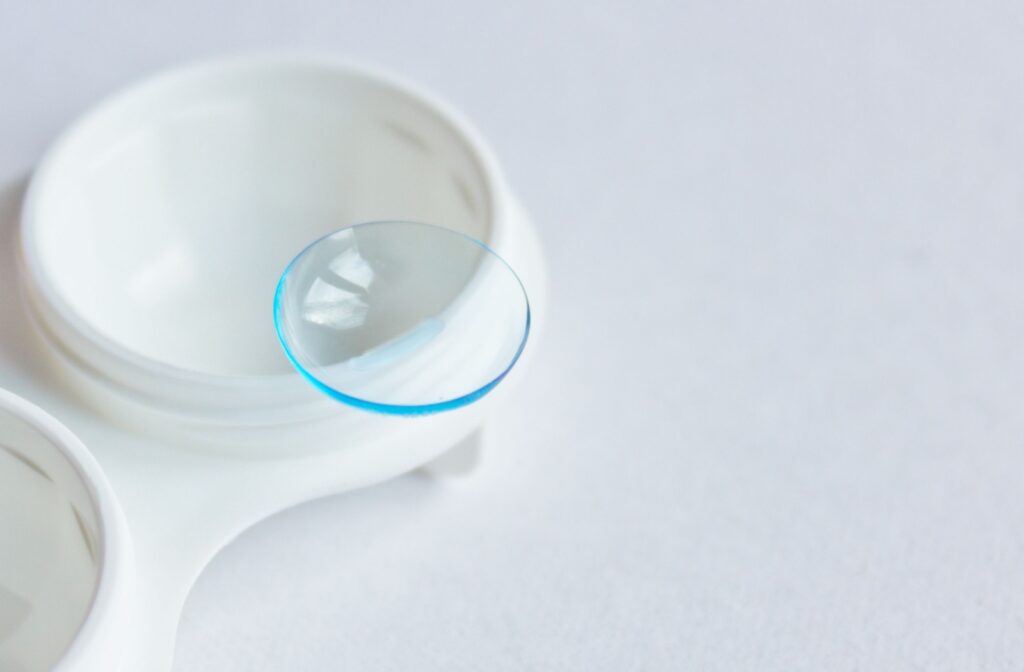
Tips for Avoiding Issues with Expired Contacts
When people run into issues with expired contact lenses, it may be because they’ve forgotten to re-order contact lenses before their current lenses expire or because of other issues related to contact wear schedules.
Here are 2 quick tips to help you avoid encountering expired contact lenses:
- Pre-order and plan ahead: Don’t wait for contact lenses to expire before you order replacements. Instead, set yourself a reminder to pre-order contact lenses ahead of time and schedule regular checkups with your eye doctor.
- First in, first out: Wear your oldest, non-expired contact lenses before new contacts to ensure you don’t use up your new supply while your older supply slowly expires.
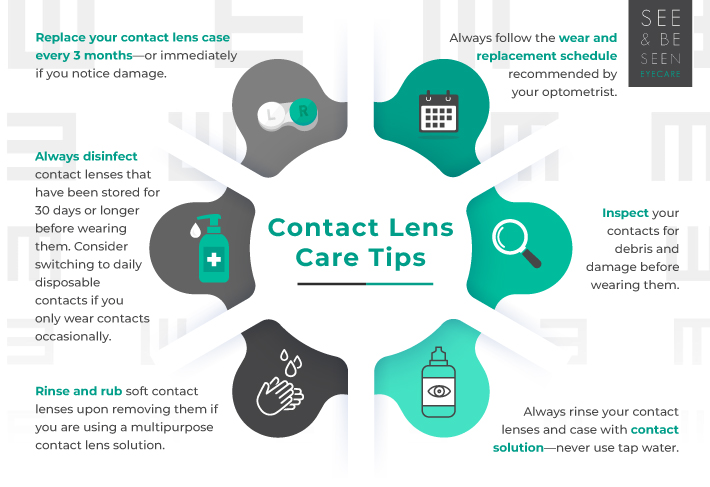
Let’s Talk About Your Contact Lens Needs
At See & Be Seen Eyecare, we help our patients explore all their options for contact lenses. Our expertise includes everything from daily disposable soft contact lenses to specialty lenses like ortho-k lenses for myopia control and scleral lenses for people with keratoconus and dry eyes.
Book an appointment with us to get help finding the right contacts for your eyes and personalized guidance on wearing and caring for your contacts.

